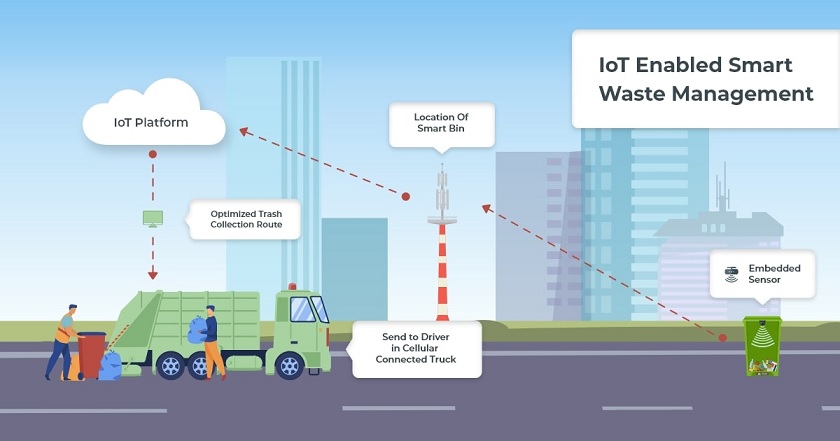In the quest for sustainable and efficient waste management, technological advancements have ushered in a new era of innovation. Mobile compactors, coupled with Smart Waste Management solutions, are at the forefront of this revolution. This article explores the seamless integration of the Internet of Things (IoT) into mobile compactors, unlocking unprecedented efficiency in waste collection and disposal. As we delve into this convergence, the keyword solar compactor bins will be intricately woven into the narrative, showcasing the comprehensive approach to modern waste management.
The Evolution of Mobile Compactors
Mobile compactors have evolved from traditional waste management systems, offering a dynamic and adaptable solution to the challenges of urban waste. These compactors, mounted on vehicles, are designed for efficient waste collection and compression, minimizing the need for frequent trips to disposal sites. Their mobility allows them to navigate densely populated areas, making them invaluable in urban settings where space optimization is crucial.
The Role of IoT in Smart Waste Management
The integration of IoT technology into waste management systems has heralded a paradigm shift. Smart Waste Management leverages interconnected devices and sensors to gather real-time data, enabling informed decision-making and efficient resource allocation. When applied to mobile compactors, this integration enhances every aspect of waste collection and disposal.
Key Components of IoT-Enabled Mobile Compactors
1. Sensors and Bin Monitoring
– IoT-enabled sensors are strategically placed within mobile compactors to monitor waste levels in real-time. This data is relayed to a centralized management system, allowing for proactive planning and optimized collection schedules.
2. GPS Tracking
– GPS technology provides precise location tracking for mobile compactors. This not only aids in route optimization but also enables authorities to monitor the compactor’s movement, ensuring adherence to designated collection zones.
3. Remote Diagnostics
– IoT integration allows for remote diagnostics of mobile compactors. In the event of a malfunction or maintenance requirement, alerts are generated, enabling prompt responses and minimizing downtime.
4. Communication Networks
– Mobile compactors, equipped with IoT, utilize robust communication networks to transmit data securely. This connectivity ensures a seamless flow of information between the compactor, waste management authorities, and the centralized control system.
Advantages of IoT-Enabled Mobile Compactors
1. Optimized Collection Routes
– Real-time data on waste levels enables waste management authorities to optimize collection routes. This not only reduces fuel consumption but also minimizes the carbon footprint associated with waste collection.
2. Efficient Resource Allocation
– With insights into waste generation patterns, authorities can allocate resources more efficiently. This includes scheduling collections based on actual demand, reducing unnecessary trips, and saving on operational costs.
3. Preventive Maintenance
– Remote diagnostics enable predictive maintenance for mobile compactors. By identifying potential issues before they escalate, authorities can implement timely maintenance, ensuring the longevity of the compactor and preventing unexpected breakdowns.
4. Data-Driven Decision Making
– The wealth of data generated by IoT-enabled mobile compactors empowers waste management authorities to make informed decisions. This includes adjusting collection frequencies, identifying high-traffic waste areas, and implementing targeted waste reduction initiatives.
5. Enhanced Sustainability
– The synergy between mobile compactors and Smart Waste Management contributes to overall sustainability goals. Reduced fuel consumption, optimized routes, and efficient resource utilization collectively contribute to a greener and more environmentally conscious waste management approach.
Solar Compactor Bins: A Symbiotic Relationship with Mobile Compactors
Integrating the keyword solar compactor bins into the narrative accentuates the comprehensive approach to waste management. Solar compactor bins, equipped with compacting mechanisms powered by solar energy, complement mobile compactors in urban landscapes.
1. Energy-Efficient Waste Compression
– Solar compactor bins harness energy from the sun to power their compacting mechanisms. This energy efficiency aligns with the sustainability goals of modern waste management.
2. Decentralized Waste Compression
– By strategically placing solar compactor bins in high-traffic areas, decentralized waste compression occurs at the source. This minimizes the load on mobile compactors and optimizes the efficiency of waste collection processes.
3. Continuous Operation
– Solar compactor bins operate autonomously, utilizing solar energy to compact waste consistently. This continuous operation ensures that waste volumes are consistently reduced, contributing to space optimization and reducing the frequency of collection.
4. IoT Integration for Monitoring
– Like mobile compactors, solar compactor bins benefit from IoT integration. Sensors monitor waste levels, allowing for timely collections and preventing overflow, enhancing the overall efficiency of waste management.
Challenges and Considerations
While the integration of IoT into waste management brings numerous benefits, it is essential to address potential challenges, including data security, privacy concerns, and the initial investment costs associated with adopting these technologies. Privacy protocols and secure data transmission mechanisms must be implemented to safeguard sensitive information.
Future Outlook: Advancements and Continued Innovation
The future of waste management lies in the continued integration of advanced technologies. Innovations such as machine learning algorithms for predictive analytics, robotic sorting systems, and the evolution of energy-efficient waste compactors will further enhance the efficiency and sustainability of waste management practices.
Conclusion
The integration of IoT technology into mobile compactors represents a leap forward in waste management efficiency. The synergy between IoT-enabled mobile compactors and solar compactor bins showcases a holistic and sustainable approach to waste collection and disposal. As urban areas continue to grow, embracing these technological advancements becomes paramount in creating cleaner, more sustainable, and resource-efficient cities. The keyword solar compactor bins serves as a beacon, highlighting the interconnectedness of smart waste management solutions for a greener future.
